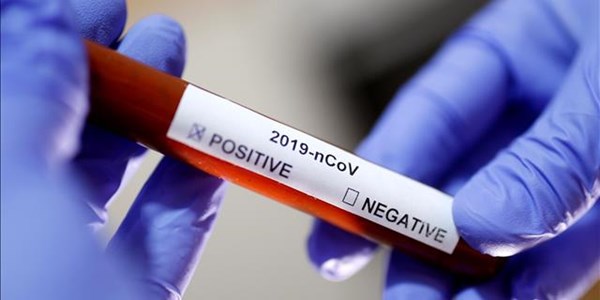South Africa
Stop mass #Covid19 testing now - irate scientists to Mkhize─── 08:27 Sun, 14 Jun 2020

A senior member of the Covid-19 Ministerial Advisory Committee (MAC) has accused the country's health leadership of refusing to change its mass testing strategy in the face of serious resource constraints and a large testing backlog.
This, even though scientists have repeatedly advised that an urgent rethink is needed.
Professor Francois Venter, head of the Ezintsha health unit at the University of the Witwatersrand and a member of the MAC, says he and other scientists cannot fathom why health authorities are sticking to a testing strategy which is not producing the necessary results.
Until now, the Covid-19 strategy – defended by Health Minister Zweli Mkhize in an interview on Friday - involves testing patients referred from a mass screening programme, which has seen more than 180 000 people referred for Covid-19 tests so far. According to Mkhize, this has enabled the department to identify hotspots which would now be targeted with more resources, including priority testing.
But Venter and others have for weeks argued that, due to severe resource constraints, leading to low turnaround times from sample collection to results, tests should be reserved for hospitalised patients and healthcare workers.
According to the National Institute for Communicable Diseases (NICD), the average turnaround time for tests is now around nine days, up from two days in April.
"The turnaround times (for tests) remain a disaster. We (scientists) have told them repeatedly to throw away the medical waste and prioritise. We've been saying this for weeks," Venter told News24 on Friday.
Two other members of the MAC supported Venter's sentiments this week: Dr Jeremy Nel, head of infectious diseases at Helen Joseph Hospital, said the testing strategy "is not moving fast enough in the right direction", while Professor Shabir Madhi, newly appointed dean of the health faculty at Wits, confirmed that "a prioritised approach was recommended to the minister".
Venter, Nel and Madhi, however, said they could not comment on what took place at MAC meetings as these were confidential.
Mkhize said on Friday the Department of Health will adopt a more focused testing strategy, which would involve prioritising infection hotspots. But this is not the same as what has previously been recommended to him publicly by Venter and others. Crucially, it does not involve getting rid of the testing backlog samples, which Venter and others say is crucial to freeing up much-needed capacity in the country's laboratories.
"Certainly, you'd want to focus on hotspots, but it's a nice to have," Venter said, adding that hotspots could not be prioritised above healthcare workers and hospitalised patients.
Mkhize said the department was looking into how long samples could last in storage. But the question from scientists has not been whether the samples can last in storage; rather, it has been whether samples older than 48 hours are useful to the Covid-19 response at all.
News24 understands that a meeting of the MAC took place on Thursday night. It is not clear whether Mkhize's mooted change of approach has been formally communicated to the MAC.
'Crisis'
Venter, considered one of the country's foremost experts on HIV and Aids, says Covid-19 testing in South Africa has been in "crisis" for some time.
Venter and others say that the country does not have enough testing resources to continue with the programme, and that unless all tests can be returned within 12–24 hours, it is impossible to isolate positive cases in time to prevent them from spreading the virus.
Mkhize acknowledged that the backlog was a problem on Friday, saying his department was managing this on a day to day basis. He said that the backlog, currently around 63 000 tests according to the National Health Laboratory Service (NHLS), is a small percentage of the one million tests done so far.














